Obama: Supreme Court ruling on health care a victory for all Americans
updated 2:12 PM EDT, Thu June 28, 2012
STORY HIGHLIGHTS
- NEW: President Obama calls the ruling a victory for the American people
- Republicans criticize the Supreme Court, call for repealing the law
- The Supreme Court finds the "individual mandate" is constitutional as a tax
- The 2010 Affordable Care Act is the signature legislation of the Obama presidency
Washington-- In a landmark ruling that will impact the November election and the lives of every American, the U.S. Supreme Court on Thursday upheld the controversial health care law championed by President Barack Obama.The narrow 5-4 ruling was a victory for Obama but also will serve as a rallying issue for Republicans calling for repeal of the Affordable Care Act passed by Democrats in 2010.
An administration official described the White House reaction as elation, while GOP opponents criticized the high court's reasoning and promised an immediate repeal effort.
"Today's decision was a victory for people all over this country whose lives are more secure because of this law," Obama said in a televised White House statement.
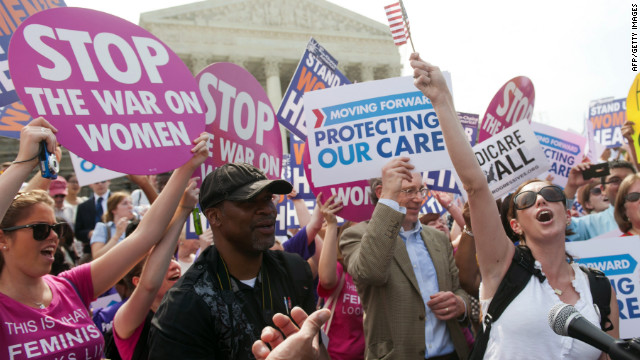
Certain Republican presidential nominee Mitt Romney's campaign reported a fund-raising spike of $300,000 just after the high court's decision was announced, and Romney said defeating Obama in November is the only way to get rid of the law despised by conservatives as a costly expansion of government.
Thursday's decision impacts how Americans get medicine and health care, and also provides new court guidelines on federal power.
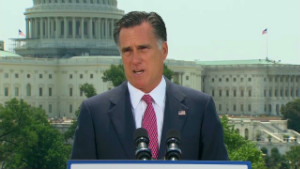
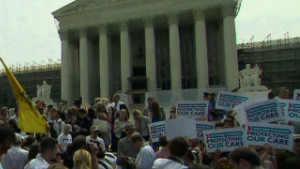
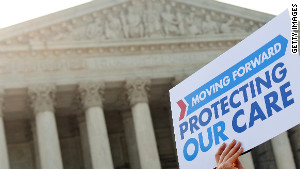
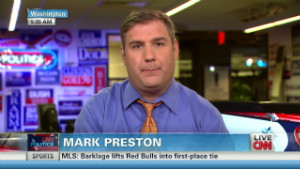
The most anticipated Supreme Court ruling in years allows the government to continue implementing the health care law, which doesn't take full effect until 2014. That means popular provisions that prohibit insurers from denying coverage for pre-existing medical conditions and allow parents to keep their children on family policies to the age of 26 will continue.
In the ruling, the high court decided the most controversial provision -- the individual mandate requiring people to have health insurance -- is valid as a tax, even though it is impermissible under the Constitution's commerce clause.
"In this case, however, it is reasonable to construe what Congress has done as increasing taxes on those who have a certain amount of income, but choose to go without health insurance," Chief Justice John Roberts wrote in the majority opinion. "Such legislation is within Congress's power to tax."
He later added: "The federal government does not have the power to order people to buy health insurance. ... The federal government does have the power to impose a tax on those without health insurance."
Roberts joined the high court's liberal wing -- Justices Stephen Breyer, Ruth Bader Ginsburg, Sonia Sotomayor and Elena Kagan -- in upholding the law. Four conservative justices -- Samuel Alito, Antonin Scalia, Anthony Kennedy and Clarence Thomas -- dissented.
"To say that the Individual Mandate merely imposes a tax is not to interpret the statute but to rewrite it," Scalia said in dissent. "Imposing a tax through judicial legislation inverts the constitutional scheme, and places the power to tax in the branch of government least accountable to the citizenry."
The polarizing law, dubbed "Obamacare" by many, is the signature legislation of Obama's time in office.
It helped spur the creation of the conservative tea party movement and will be a centerpiece of the presidential election campaign.
Romney called Obamacare bad policy and a bad law, adding that defeating Obama in November is the only way to get rid of it.
"What the court did not do in its last session, I will do on the first day if elected president of the United States, and that's to repeal Obamacare," he said Thursday after the court's decision was announced.
Obama used the focus on the issue to spell out the benefits of the law that remains unpopular with many Americans. The principle upheld by the high court's ruling is that no American should go bankrupt because of illness, the president said.
"I know the debate over this law has been divisive," Obama said. "It should be pretty clear that I didn't do this because it was good politics. I did it because I believe it is good for the country."
He said the country can't afford to "to refight the political battle of two years ago or go back to the way things were."
Other Democrats celebrated the policy victory.
House Democratic leader Nancy Pelosi of California, who helped push through the law when she was House speaker, cited the late Sen. Edward Kennedy of Massachusetts, a longtime proponent of health care reform who died before the bill became law.
"Now he can rest in peace," Pelosi told reporters, echoing an earlier phone call she made to Kennedy's widow.
Chicago Mayor Rahm Emanuel, Obama's former White House chief of staff, called it a "historic day."
"The president had the courage to bend the needle of history and did something presidents have tried to do for 60 years," Emanuel said of broadening health care accessibility.
In his opinion, Roberts appeared to note the political divisions of the health care law, writing that "we do not consider whether the act embodies sound policies."
"That judgment is entrusted to the nation's elected leaders," the opinion said. "We ask only whether Congress has the power under the Constitution to enact the challenged provisions."
The narrow focus of the ruling on key issues such as the individual mandate -- limiting it to taxing powers rather than general commerce -- represented the court's effort to limit the government's authority.
"The framers created a federal government of limited powers and assigned to this court the duty of enforcing those limits," Roberts wrote. "The court does so today."
On the individual mandate, the opinion said that "the Affordable Care Act's requirement that certain individuals pay a financial penalty for not obtaining health insurance may reasonably be characterized as a tax.""Because the Constitution permits such a tax, it is not our role to forbid it, or to pass upon its wisdom or fairness," Roberts wrote.
Republicans immediately seized on the ruling to accuse Obama of lying to the American people when he said during the protracted political debate on the bill in 2009 that it wasn't a tax.
In an interview with ABC, Obama said then that the various provisions of the health care law were intended to create an all-inclusive system, so that penalizing people who refused to join was not a tax.
"For us to say that you've got to take a responsibility to get health insurance is absolutely not a tax increase," Obama said, noting that "right now everybody in America, just about, has to get auto insurance. Nobody considers that a tax increase. People say to themselves, that is a fair way to make sure that if you hit my car, that I'm not covering all the costs."
Republican Rep. Michele Bachmann of Minnesota, a leading tea party voice against the health care law, complained that the ruling "means now for the first time in the history of the country, Congress can force Americans to purchase any product, any service."
"This is truly a turning point in American history. We'll never be the same way again," Bachmann said, adding that "this is a more far-reaching decision than anyone had expected or imagined."
Roberts, however, wrote in the majority opinion that Congress exercised an authority it held to assess a tax, rather than create any new taxing authority.
In another part of Thursday's decision, the high court ruled that a part of the law involving Medicaid must change.
The law calls for an expansion of eligibility for Medicaid, which involves spending by the federal government and the states, and threatens to remove existing Medicaid funding from states that don't participate in the expansion. Thursday's ruling said the government must remove that threat.
Several groups that follow the health care law closely said they were keeping an eye on the potential impact of the Medicaid ruling.
In his remarks, Obama acknowledged a need to improve those parts of the health care law that need it.
According to a poll released Tuesday, 37% of Americans said they would be pleased if the health care law were deemed unconstitutional by the Supreme Court.
Twenty-eight percent said they would be pleased if the Affordable Care Act were ruled constitutional, the NBC News/Wall Street Journal survey showed, compared with 35% who said they would be disappointed if the court came back with that outcome.
But nearly four in 10 Americans surveyed said they would have "mixed feelings" if the justices struck down the whole law. The survey of 1,000 adults was conducted June 20-24.
Previous surveys have indicated that some who oppose the law do so because they think it doesn't go far enough.
The Supreme Court heard three days of politically charged hearings in March on the law formally known as the Patient Protection and Affordable Care Act. The landmark but controversial measure was passed by congressional Democrats despite pitched Republican opposition.
The challenge focused primarily on the law's requirement that most Americans have health insurance or pay a fine.
Supporters of the plan argued the "individual mandate" is necessary for the system to work, while critics argued it is an unconstitutional intrusion on individual freedom.
Four federal appeals courts heard challenges to parts of the law before the Supreme Court ruling, and came up with three different results.
Courts in Cincinnati and Washington voted to uphold the law, while the appeals court in Atlanta struck down the individual mandate.
A fourth panel, in Richmond, Virginia, put its decision off until penalties for failing to have health insurance take effect in 2014.
The act passed Congress along strictly partisan lines in March 2010, after a lengthy and heated debate marked by intense opposition from the health insurance industry and conservative groups.
When Obama signed the legislation later that month, he called it historic and said it marked a "new season in America."
While it was not the comprehensive national health care system liberals initially sought, supporters said the law would reduce health care costs, expand coverage and protect consumers.
In place of creating a national health system, the law bans insurance companies from denying coverage to people with pre-existing medical conditions, bars insurers from setting a dollar limit on health coverage payouts, and requires them to cover preventative care at no additional cost to consumers.
It also requires individuals to have health insurance, either through their employers or a state-sponsored exchange, or face a fine beginning in 2014. There are, however, a number of exemptions. For instance, the penalty will be waived for people with very low incomes who are members of certain religious groups, or who face insurance premiums that would exceed 8% of family income even after including employer contributions and federal subsidies.
Supporters argued the individual mandate is critical to the success of the legislation, because it expands the pool of people paying for insurance and ensures that healthy people do not opt out of having insurance until they need it.
Critics say the provision gives the government too much power over what they say should be a personal economic decision.
Twenty-six states, led by Florida, went to court to say individuals cannot be forced to have insurance, a "product" they may neither want nor need. And they argued that if that provision is unconstitutional, the entire law must go.
The Justice Department countered that since every American will need medical care at some point in their lives, individuals do not "choose" whether to participate in the health care market.
The partisan debate around such a sweeping piece of legislation has encompassed almost every traditional hot-button topic: abortion and contraception funding, state and individual rights, federal deficits, end-of-life care, and the overall economy.
During arguments on March 27, Justice Anthony Kennedy said the law appeared to "change the relationship between the government and the individual in a profound way."
Roberts argued then that "all bets are off" when it comes to federal government authority if Congress was found to have the authority to regulate health care in the name of commerce.
Liberal justices, however, argued people who don't pay into the health system by purchasing insurance make care more expensive for everyone. "It is not your free choice" to stay out of the market for life, Justice Ruth Bader Ginsburg said during arguments.
The legislation signed by Obama stretched to 2,700 pages, nine major sections and some 450 provisions.
The first lawsuits challenging the health care overhaul began just hours after the president signed the measure.
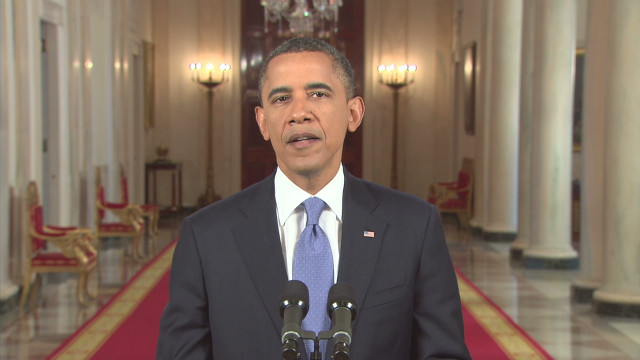
No comments:
Post a Comment